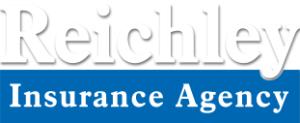Low Cost Insurance Is Not Better Insurance
Insurance is a necessary expense for many people. Whether it’s health insurance, car insurance, or home insurance, having coverage can give you peace of mind and protect you from financial ruin in the event of an accident or unexpected event. However, not all insurance policies are created equal, and opting for the cheapest option may not always be the best choice. In fact, cheaper insurance is often not better insurance. Here are some reasons why.
Lower Coverage Limits
One of the main ways insurance companies can offer cheaper rates is by offering lower coverage limits. Coverage limits are the maximum amount of money an insurance company will pay out for a claim. If you opt for cheaper insurance, you may be getting lower coverage limits, which means you may not be fully covered in the event of a major accident or unexpected event. This can leave you with significant out-of-pocket expenses that you may not be able to afford.
Higher Deductibles
Another way insurance companies can offer cheaper rates is by increasing the deductible – the amount of money you must pay out of pocket before your insurance coverage kicks in. While a higher deductible can lower your monthly premium, it also means you’ll have to pay more out of pocket before your insurance company starts covering the cost of damages. This can be a burden, especially if you’re already struggling to make ends meet.
Exclusions and Limitations
Cheaper insurance policies may also come with exclusions and limitations that can limit your coverage. For example, some health insurance policies may exclude coverage for pre-existing conditions or limit coverage for certain medical treatments. Car insurance policies may exclude coverage for certain types of accidents or limit coverage for damages to your vehicle. These exclusions and limitations can leave you with significant gaps in coverage that can leave you vulnerable to financial loss.
Poor Customer Service
Cheaper insurance policies may also come with poor customer service. Insurance companies that offer cheap rates often need more resources to invest in customer service, which can lead to long wait times, unhelpful representatives, and delayed claims processing. This can be frustrating and stressful, especially if you need to file a claim in a hurry.
In conclusion, while it may be tempting to opt for the cheapest insurance policy available, it’s important to consider the potential drawbacks of doing so. Cheaper insurance policies may offer lower coverage limits, higher deductibles, exclusions and limitations, poor customer service, and less comprehensive coverage. Instead, it’s important to shop around for insurance policies that offer the right balance of coverage and affordability. By doing so, you can ensure that you’re fully protected in the event of an accident or unexpected event without breaking the bank.














